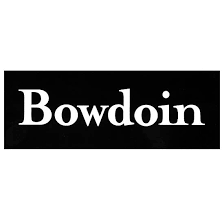The cryptocurrency landscape is rapidly evolving, and DTX Exchange (DTX) is emerging as a disruptive force that is challenging established players like Solana (SOL) and Ethereum (ETH). By combining institutional-grade trading tools with decentralized governance, DTX is positioning itself to redefine market dynamics. The exchange has already raised a staggering $13.3 million in its eighth presale stage, signaling strong market confidence ahead of its highly anticipated Q1 2025 launch.
DTX Exchange’s presale success and its unique features, including a blockchain capable of handling 200,000 transactions per second (TPS), are directly challenging Solana’s price trends and Ethereum’s scalability concerns. While Solana’s price fluctuates between $230 and $270 amidst growing concerns over network congestion, and Ethereum continues to struggle with scaling solutions, DTX introduces a fresh, hybrid infrastructure that could disrupt the status quo.
What sets DTX Exchange apart is its ability to enable cross-asset trading across more than 120,000 instruments, spanning cryptocurrencies, stocks, ETFs, and forex pairs. All of this is accessible through its proprietary Phoenix Wallet, a powerful tool that contrasts with the narrower focus of Solana, which primarily targets decentralized applications, and Ethereum, which revolves around smart contracts primarily for crypto-native assets. DTX’s blockchain, VulcanX, provides an impressive 200,000 TPS, far exceeding Ethereum’s 15-45 TPS and even outpacing Solana’s theoretical 65,000 TPS. This technical edge gives DTX a distinct advantage, enabling it to offer 1000x leverage across markets—a feature not currently available on Solana or Ethereum-based platforms.
In addition to its high throughput, DTX Exchange integrates institutional-grade liquidity and real-time risk management tools, creating an environment that caters to both retail and professional traders. This level of sophistication is designed to enhance market efficiency and address some of the limitations seen in other blockchain ecosystems. The $13.3 million raised during the presale reflects the growing investor interest in DTX, with its $0.16 token price appealing to those seeking an alternative to the volatility of Solana and Ethereum.
Market analysts highlight that while Solana’s price could still reach $300-$350 by the end of 2025, DTX’s current valuation presents a more compelling risk-reward profile. With a rapidly growing user base of 575,000 active users, DTX is attracting organic adoption rather than relying solely on speculative trading. In comparison, Ethereum’s recent network activity, including 200,000 new addresses created in January 2025, indicates robust fundamentals but hasn’t translated into significant price momentum, with ETH struggling to maintain the $3,200 mark.
DTX Exchange stands out further with its governance model, which allows token holders to directly influence product roadmaps and share in the platform’s exchange profits. This contrasts with the more centralized structures of Solana and Ethereum, where governance is more rigid, creating a disconnect between the platforms’ development and the interests of their token holders.
Looking ahead, DTX’s Q1 2025 launch will introduce tokenized ETF trading, marking a significant step into the realm of traditional finance. This move not only increases its appeal to institutional investors seeking exposure to regulated crypto assets but also positions DTX to directly compete with the challenges posed by Solana’s price volatility and Ethereum’s regulatory uncertainties.
DTX’s innovative approach, bolstered by VulcanX’s enterprise-grade testnet, could pave the way for the onboarding of traditional asset traders who seek the efficiency and advantages offered by blockchain technology. While DTX’s $0.20 listing price represents a 25% premium from current presale levels, analysts believe that this price undervalues the platform’s potential, especially considering the vast $100 trillion global trading industry it aims to tap into.
Moreover, DTX’s transaction speed and asset diversity offer structural advantages over Solana’s price fluctuations and Ethereum’s ongoing scaling challenges, positioning it as a more resilient and scalable alternative. The strong traction seen in DTX’s presale suggests that investor sentiment is shifting, with more capital flowing towards utility tokens over traditional Layer-1 solutions like Solana and Ethereum.
Additionally, DTX’s integration of ETFs and institutional-grade leverage, along with its advanced consensus mechanism and cross-chain compatibility, sets it apart from the competition. These features not only enhance DTX’s adaptability but also contribute to its long-term viability, making it a formidable contender in the increasingly competitive blockchain space. As the demand for high-performance blockchain ecosystems continues to grow, DTX Exchange’s unique offerings could make it a key player in shaping the future of digital trading.

